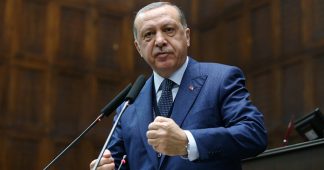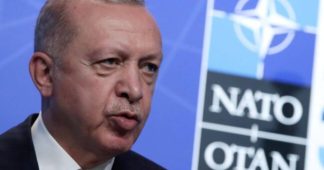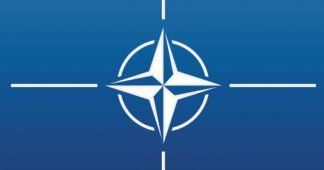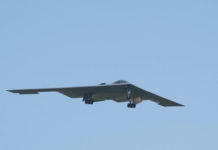Stockholm was an early ally of the Turkish Republic, but today Ankara stands in the way of Sweden joining Nato. MEE takes a look at the reasons why
Yusuf Selman Inanc
29 May 2022
When the Turkish Republic was founded on 29 October 1923, Sweden was the first Scandinavian state to recognise the Ankara government, and just a year later the two countries signed a “friendship agreement” in Turkey’s capital.
The warm relations, which were mainly based on the common threat of Russia, were a continuation of strategic ties between Sweden and the Ottoman Empire. In 1984, Sweden became the first country after Turkey to label the Kurdistan Workers’ Party (PKK) a terror organisation.
In the years since, relations have been generally calm and friendly, though there were ups and downs, predominantly caused by Sweden providing refuge to Turkish dissidents, including famous authors like Yasar Kemal and Zulfu Livaneli as well as PKK members such as the Kurdish separatist group’s co-founder Huseyin Yildirim.
In fact, Stockholm has advocated Turkey’s accession to the European Union, and Ankara has long regarded Sweden as an ally in the north. In 2013, a joint declaration on strategic partnership was signed in Stockholm.
Though the Russian threat has long united the two countries, it has now exposed their differences.
Russia’s invasion of Ukraine has prompted Sweden and Finland to apply to join Nato. But rather than welcome its strategic northern partner into the alliance, Turkey has pushed back and become the chief obstacle to the countries’ accession.
Turkey’s objection did not come out of nowhere. Weeks before the media reported about Sweden and Finland’s official intention to join Nato, a source told Middle East Eye that Turkey would “not allow such a move unless the two countries would distance themselves from ‘terror’” – by which they meant the PKK.
Kurdish tensions
Turkey’s gripes are 40 years old.
In the 1980s, the PKK’s war against Turkey intensified, resulting in the deaths of thousands of people and a harsh response by the Turkish army. Some PKK members began fleeing to Europe and creating branches in different European cities. Sweden, as a country with particularly tolerant laws and regulations towards “political and ethnic refugees,” became a popular destination.
And it wasn’t just PKK members that made Sweden their home. Kurdish authors and intellectuals with no PKK affiliation also settled there, subsequently clashing with the militant group’s members over Kurdish issues.
In 1984 and 1985, two ex-PKK members – Enver Ata and Semir Gungor – were assassinated in Sweden at the request of PKK leader Abdullah Ocalan, who was captured by Turkey in 1999 and given a life sentence.
This was the moment the Scandinavian country realised that the PKK could be a threat Sweden as well, and listed the group as a terror organisation.
Huseyin Yildirim, who was then responsible for the PKK’s Europe branches, threatened the Swedish government and demanded the group be delisted. Decades later, Yildirim said the PKK had “killed a lot of people”.
Ocalan’s ex-wife, Kesire Yildirim, also lives in Sweden, after she was banished by her ex-husband from the group. According to Huseyin Yildirim, Ocalan ordered the PKK to kill his wife because she was objecting to certain orders.
Olof Palme, the Swedish prime minister who listed the PKK a terror organisation and attempted to end its activities in the country, was assassinated in 1986. His murderer was never found, though, in a widely criticised move, Swedish prosecutors said in 2020 they had “reasonable evidence” that graphic designer and long-term suspect Stig Engstrom was the culprit.
Nevertheless, the PKK has long been one of the prime suspects.
Semdin Sakik, a senior PKK commander and brother of the Kurdish politician Sirri Sakik, said in 1999 that the PKK was behind the assassination. Ocalan even told a Turkish court in 1999 that his ex-wife’s splinter group may have been behind Palme’s killing.
We remind our readers that publication of articles on our site does not mean that we agree with what is written. Our policy is to publish anything which we consider of interest, so as to assist our readers in forming their opinions. Sometimes we even publish articles with which we totally disagree, since we believe it is important for our readers to be informed on as wide a spectrum of views as possible.











